Seminar Series
The Centre for Hydrology’s monthly seminar series highlights the latest hydrological research from across campus. These sessions offer our community a chance to share knowledge, exchange ideas, and connect in an open, collaborative setting.
Upcoming Seminars (2026)
| Date | Speaker(s) | Seminar Topic | |
|---|---|---|---|
| February 24 | Andrew Ireson | Modelling hydrological processes in frozen soils using the soilice model | |
| March 24 | Arsh Grewal | Catchments as integrators of landscape processes: Insights from hydrometrics, stream chemistry, and stable isotopes of water | |
| April 8 | tbc | tbc |
February 24
Modelling hydrological processes in frozen soils using the soilice model
Physically based frozen soil models are essential for understanding hydrological processes in cold regions, particularly snowmelt infiltration into seasonally frozen soils and permafrost thaw. My objective has been to develop a simple, point scale mass- and energy-conservative soil model that can be used to systematically evaluate the numerous implicit and explicit assumptions embedded in existing models, which I call soilice. The model has excellent mass and energy conservation, including for problems with significant mass flow and advected heat. The code is simple and readable, making it easy to test new algorithms and process representations.
In this presentation I will show how soilice is able to simulate infiltration in seasonally frozen soils in a way that is consistent with the field-based conceptual understanding of infiltration processes, where snowpack and antecedent soil moisture play a critical role in runoff vs infiltration partitioning. We use the model to show the critical importance of frozen-soil hydraulic conductivity in simulating snowmelt infiltration and moisture redistribution by cryosuction. We apply the model to both seasonally frozen and permafrost soils, and demonstrate the importance of accurately representing infiltration in frozen soils for realistic simulations of soil moisture and freeze-thaw dynamics in cold regions.
Date: Tuesday, February 24
Time: 3:30 - 4:30 PM
Location: Kirk Hall, Room 146
Speakers:
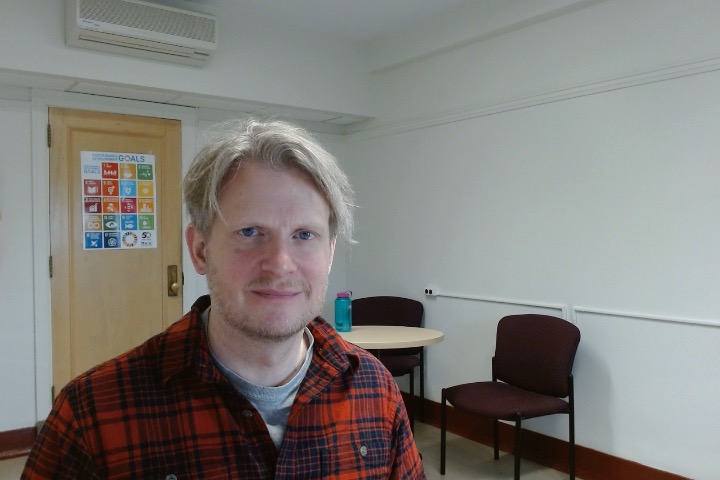
Andrew Ireson
Professor
School of Environment and Sustainability
March 24
Catchments as integrators of landscape processes: Insights from hydrometrics, stream chemistry, and stable isotopes of water
Catchment science seeks to infer the properties of storage and to characterize biogeochemical processes across the landscape and river corridor by quantifying the fluxes of water, energy, and solutes entering and leaving the catchment over time. For example, the partitioning of snowmelt and rainfall into evapotranspiration and streamflow is governed by the catchment energy balance and the structure of subsurface storage.
In this seminar, I explore how landscape heterogeneity and configuration can influence downstream chemistry through snapshot sampling. I will also highlight value of conservative and non-conservative tracers in characterizing water storage and release processes at the catchment scale. Case studies span a range of climates and landscapes including the Yukon Territory, Alaska’s North Slope, agricultural landscapes of Southern Ontario, and wetland complexes in central Michigan.
Date: Tuesday, March 24
Time: 3:30 - 4:30 PM
Location: Kirk Hall, Room 146
Speakers:

Arsh Grewal
Assistant Professor
College of Arts and Science
2026 Seminars
Hydrology in submarine subduction zones - from sampling to quantifying fault slip using Geochemistry
Marine hydrologists and geochemists collect fluid samples in submarine subduction zones through ocean drilling, remotely operated vehicles, and benthic fluid samplers. Analyzing the chemical compositions of the fluid allows us to understand where the deep fluid comes from, what reactions are happening deep within subduction zones, and the activities of deep microorganisms below the seafloor. Fluid chemistry also allows us to quantify transient events that shape subduction zone behavior. This seminar will introduce the general tools for investigating fluid flow below the seafloor, as well as Man-Yin Tsang’s recent project offshore New Zealand, which links fluid chemistry and fault slip research.
The outer forearc of the northern Hikurangi subduction zone, New Zealand, hosts diverse fault slip modes, including slow slip events (SSEs) and tsunamigenic earthquakes. Splay faults, which branch from the megathrust at steeper angles, can slip during earthquakes and generate large tsunamis. While such slip along splay faults is evident in some subduction zones, quantitative knowledge of their activity, as well as their occurrence in subduction zones with diverse fault slip modes, remains limited. The Papaku Fault of the Hikurangi subduction zone, a major splay fault landward of the deformation front, has a large offset and soles into the megathrust near the SSE source area. Ocean drilling penetrated the Papaku Fault at ~300 metres below the seafloor, revealing that it formed from the overthrusting of a consolidated hanging wall onto a previously unburied footwall.
Pore water solute profiles from the sediment drill cores show a repeated early diagenetic sequence in the footwall, confirming overthrusting of ancient seafloor sediments. Post-burial reactions and solute diffusion across the fault produced non-steady-state solute profiles. Using bromide, ammonium and chloride profiles, we can estimate when overthrusting started, the contemporary slip rate of the splay fault, and the contribution of the splay fault to the overall plate motion. These findings demonstrate that plate motion is partitioned between the megathrust and splay faults, emphasizing the role of splay faults in regional hazard assessments.
Date: Tuesday, January 20
Time: 3:30 - 4:30 PM
Location: Kirk Hall, Room 146
Speakers:

Man-Yin Tsang
Assistant Professor
Department of Geological Sciences, USask
2025 Seminars
Centre for Hydrology Research Update
Join us for an update on the Centre for Hydrology's activities and research, presented by Director John Pomeroy and Associate Directors, Cherie Westbrook and Warren Helgason. This session is open to hydrology faculty, staff, students, and anyone interested in learning more about our work and future directions.
Date: Tuesday, September 23
Time: 3:30 - 4:30 PM
Location: Kirk Hall, Room 146
Speakers:

John Pomeroy
Director, Centre for Hydrology
Deptartment of Geography and Planning, USask
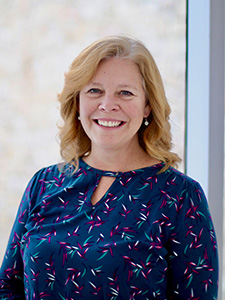
Cherie Westbrook
Associate Director, Centre for Hydrology
Department of Geography and Planning, USask
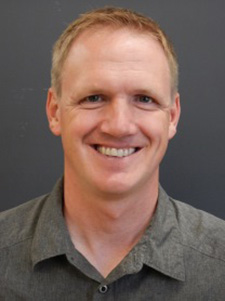
Warren Helgason
Associate Director, Centre for Hydrology
Department of Civil, Geological and Environmental Engineering, USask
Design floods in a changing Earth: practices, challenges, and pathways forward
Design floods are central to how we plan, design, and adapt to future hydroclimates. Yet, we should improve the way we estimate them. In this talk, I will discuss how practices across Canada vary widely, often with limited transparency and little consideration of nonstationarity or other Earth system complexities. These challenges matter because they shape how we prepare for climate change. I will also highlight two recent advances that point to pathways forward: (a) new frameworks for flood frequency analysis that make nonstationary modelling more accessible, systematic, and reproducible, and (b) novel bias-correction methods that improve how climate model projections of extreme events are adjusted for local-scale practical use, explicitly accounting for continuous climate change. Together, these perspectives point toward more transparent, robust, and realistic approaches to design flood estimation. Achieving this vision, however, will require continued research and stronger collaboration among practitioners, researchers, and governments.
Date: Monday, October 20
Time: 3:30 - 4:30 PM
Location: Kirk Hall, Room 146
Speakers:
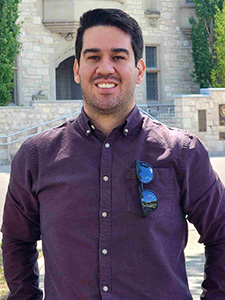
Cuauhtémoc T. Vidrio-Sahagún
Assistant Professor
Department of Civil, Geological, and Environmental Engineering, USask
Lakes, Change, and Adaptation in the Prairies: How Hydrology can help Limnology
The Prairies are a constantly changing environment, subject to multiple stressors impacting water security. Water quality in the region is often poor, impacting multiple water uses, including water treatment, recreational uses and cultural uses. Using lessons from a long-term partnership on water treatment, this seminar will address about how water quality has been changing and highlight important hydrological and/or agricultural questions related to future change. The discussion will include the potential for further collaborative water research on campus that spans multiple disciplines, focussing on societal needs for adaptation to water quality stressors.
Date: Monday, November 17
Time: 3:30 - 4:30 PM
Location: Kirk Hall, Room 146
Speakers:
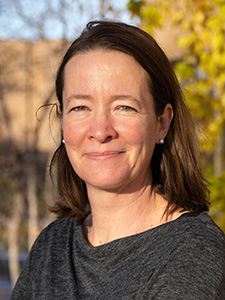
Helen Baulch
Professor
School of Environment and Sustainability, USask
